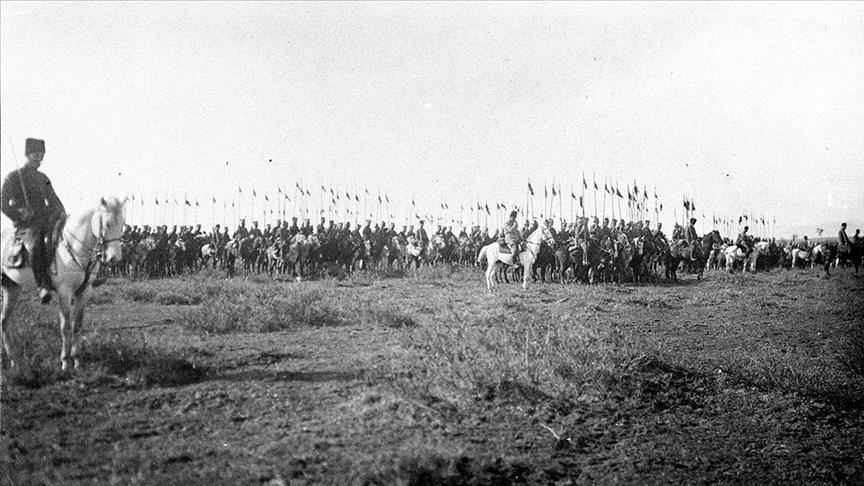Türkiye gears up to celebrate 101st anniversary of Victory Day
Historic day commemorates decisive defeat of occupying Greek army in Battle of Dumlupinar in 1922

ANKARA
Türkiye on Wednesday will celebrate the 101st anniversary of its Victory Day, which commemorates the decisive defeat of the occupying Greek army in the Battle of Dumlupinar in 1922.
The Great Offensive – one of the greatest military victories in history – was launched by the Turkish Armed Forces on Aug. 26, 1922 under the leadership of Mustafa Kemal Ataturk, the founder of modern Türkiye, and ended on Sept. 18 that same year.
According to information compiled by Anadolu, the victors of World War I – also known as the Entente Powers – landed in present-day Türkiye in 1919, occupying large areas based on the provisions of the Armistice of Mudros.
French troops took over the region around Adana, now in southern Türkiye, while British soldiers entered Urfa, now Sanliurfa, and Maras, now Kahramanmaras, further to the east, as well as Samsun and the town of Merzifon, Amasya in the Black Sea region.
The Italians, meanwhile, occupied large tracts of the Mediterranean coastline, including Antalya and other southwestern Anatolian cities.
On May 15, 1919, the Greek army landed in Izmir with the permission of the Entente Powers, triggering what would become a full-fledged uprising and campaign against the rule of occupying forces in the country.
Turks knew there were only two possible choices – surrender or fight – and they banded together as the Kuvayi Milliye, or National Forces, to take on the invaders.
The Turkish Grand National Assembly, or parliament, was launched in Ankara in 1920, as the occupiers focused their repressive policies on Ataturk and his colleagues, while the Turkish Army moved to the western front.
The following year, Turkish soldiers would repel Greek forces that advanced within 70 kilometers (43.5 miles) of the parliament.
After roughly one year of preparation, commander-in-chief Ataturk launched the Great Offensive on Aug. 26, 1922 to expel the occupiers.
Moving further west, he led the battle with his top commanders Fevzi Cakmak and Ismet Inonu.
At dawn, the offensive began with artillery fire as Turkish soldiers pushing forward seized Tinaztepe, Belentepe, and Kalecik Sivrisi near the town of Afyonkarahisar, which the Turkish army would seize on Aug. 27.
On the night of Aug. 29, the commanders made a situation assessment and agreed to act immediately and decisively.
Ataturk ordered the Turkish army to move to the western Kutahya region on Aug. 30, dealing a decisive blow to Greek troops in Anatolia.
Following the victory, Ataturk, Cakmak and Inonu set out to expel the remaining Greek soldiers from Anatolia with an offensive on the city of Izmir on the Aegean coast.
“Armies, your first goal is the Mediterranean. Forward!” Ataturk ordered his troops, who moved out from Kutahya on Sept. 1 and liberated Izmir on Sept. 9.
Two years later, on Aug. 30, 1924, Ataturk attended the groundbreaking ceremony of the Martyr Sancaktar Soldier Monument.
“The Turkish nation has once again engraved this truth in the bosom of history with a steel pen with the victory it has won, the power it showed and its will,” he said in an address that remains etched in the annals of history.
Anadolu Agency website contains only a portion of the news stories offered to subscribers in the AA News Broadcasting System (HAS), and in summarized form. Please contact us for subscription options.







